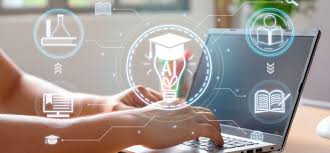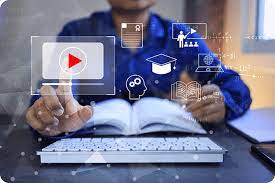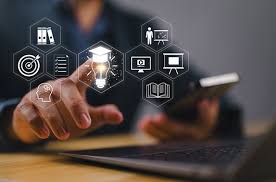In an ever-changing world driven by technological advancements and evolving industries, lifelong learning has become a critical necessity. The traditional view of education as something confined to the early years of life is quickly becoming obsolete. As we move into the future, education is evolving to support continuous learning that spans across the lifespan. This shift is not only transforming education systems but also empowering individuals to remain relevant in an increasingly complex global economy.
In this article, we’ll explore how lifelong learning is revolutionizing education, the benefits it brings to society, and how individuals can embrace it to unlock their full potential.
What Is Lifelong Learning?
Lifelong learning is the practice of constantly developing and enhancing one’s skills and knowledge throughout life. Unlike traditional education models that focus on a fixed period (usually school and university), lifelong learning encourages continuous self-improvement and adaptation.
This concept includes both formal education, such as online courses and certifications, and informal learning through activities like reading, volunteering, and experiential learning. Lifelong learning enables individuals to stay competitive in the workforce, enrich their personal lives, and engage with an ever-changing world.
The Importance of Lifelong Learning in the Modern World
As the job market continues to evolve, the need for adaptability and continuous skill development has never been more important. With the rise of automation, artificial intelligence (AI), and rapidly changing technologies, the traditional model of completing education and entering the workforce for life is no longer sufficient.
Key Drivers of Lifelong Learning:
- Technological Advancements: The rapid pace of technological change requires workers to continually update their skills to remain competitive.
- Globalization: With businesses becoming increasingly global, the demand for cross-cultural understanding and international collaboration grows.
- Job Market Shifts: The rise of the gig economy and remote work is pushing individuals to develop a diverse skill set to succeed in non-traditional roles.
Lifelong Learning and Economic Growth
Countries and organizations that invest in lifelong learning can build more adaptable workforces, which is essential for staying competitive in the global economy. According to the World Economic Forum, economies that prioritize education and skill development are more likely to thrive in the long term.
How Lifelong Learning Is Revolutionizing Education
The rise of lifelong learning is transforming traditional education systems. Schools, universities, and learning platforms are adapting to meet the needs of learners of all ages by providing more flexible, accessible, and diverse educational opportunities.
1. Online Learning and Digital Education Platforms
Online education has revolutionized access to learning by providing flexible, affordable, and accessible opportunities for people of all ages. With the rise of platforms like Coursera, edX, and Udemy, learners can now access courses from top universities and experts without ever leaving their homes.
- Advantages: Convenience, affordability, diverse course offerings, and global access.
- Example: Individuals can take a course on data science, project management, or digital marketing while working full-time or managing other commitments.
2. Micro-Credentials and Certifications
Micro-credentials, or digital badges, are gaining popularity as they offer specific, focused learning on particular skills. These credentials are often awarded for completing short-term courses or workshops that are highly relevant to industry needs.
- Benefits: Enables learners to acquire specialized skills quickly and apply them in the workforce.
- Example: A professional might earn a certification in cloud computing or agile project management to advance their career.
3. Corporate Learning Programs
Companies are increasingly investing in employee development programs as part of their business strategy. These initiatives often include workshops, training sessions, and access to external learning platforms to keep employees’ skills up-to-date.
- Impact on Businesses: Encouraging lifelong learning within organizations can improve productivity, foster employee loyalty, and reduce turnover rates.
- Example: Companies like Google, IBM, and Microsoft offer continuous learning opportunities for their employees, ensuring they stay at the forefront of technological advancements.
4. Peer-to-Peer and Community Learning
Learning is no longer confined to formal classrooms. Peer-to-peer and community-based learning initiatives are allowing individuals to connect, share knowledge, and learn from each other.
- Impact: These models foster a collaborative approach to education, allowing for diverse perspectives and knowledge sharing.
- Example: Local community groups or online forums often host workshops or discussions where people can learn new skills or exchange ideas.
The Benefits of Lifelong Learning
Adopting a lifelong learning mindset has numerous benefits that extend beyond professional development.
1. Enhanced Career Opportunities
As technology and industries evolve, lifelong learners are more equipped to pivot their careers and seize new opportunities. With the right skills, individuals can explore multiple industries, roles, or even become entrepreneurs.
2. Improved Cognitive Health
Continuous learning helps to keep the brain active and engaged, which can improve mental well-being and help prevent cognitive decline in older adults.
3. Personal Growth and Satisfaction
Learning new things can be personally enriching and fulfilling. Lifelong learning offers individuals the opportunity to pursue passions, develop hobbies, and gain a sense of achievement outside of their professional life.
4. Stronger Social Connections
Engaging in learning communities fosters collaboration, networking, and the development of meaningful relationships with like-minded individuals.
How to Embrace Lifelong Learning
1. Develop a Growth Mindset
A key to embracing lifelong learning is adopting a growth mindset. Believe that skills and intelligence can be developed with effort, dedication, and perseverance.
2. Take Advantage of Online Resources
With the rise of MOOCs (Massive Open Online Courses), YouTube tutorials, and podcasts, there is an abundance of free and paid resources available to learn almost anything.
3. Set Learning Goals
To stay focused and motivated, set clear learning goals and timelines. This could include learning a new language, mastering a programming language, or taking up a new hobby like photography.
4. Participate in Workshops and Webinars
Look for local or online workshops and webinars that align with your interests. Many of these events are highly interactive and allow you to learn practical skills.
Conclusion: The Future of Education is Lifelong Learning
The concept of lifelong learning is not only transforming individual lives but also reshaping global educational landscapes. As we move forward, the need for continuous skill development and knowledge acquisition will only increase. By unlocking the power of lifelong learning, we can empower individuals to stay ahead of the curve, adapt to change, and unlock new opportunities for growth—both personally and professionally.
As we embrace the revolution in education, the possibilities for a future driven by lifelong learning are limitless. Whether you’re looking to advance your career, explore a new passion, or stay competitive in a fast-changing world, lifelong learning is the key to a successful and fulfilling future.
SEO Best Practices Included:
- Keywords: Lifelong learning, revolutionizing education, online learning, personalized education, micro-credentials, digital education, career development, online courses, personal growth, education transformation, continuous learning, adult education, corporate learning programs.
- Headers: Organized with H1, H2, and H3 tags for SEO optimization and readability.
- Meta Description: Explore how lifelong learning is revolutionizing education. Learn how continuous learning can unlock career opportunities, enhance personal growth, and shape the future of education.





